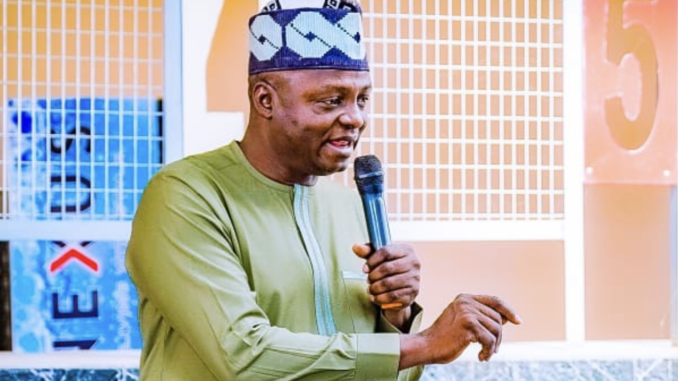
Newsie Events Media :
In a bold shift toward data-driven governance, the Nigerian federal government is now deploying artificial intelligence (AI), satellite imagery, and telecom data to locate and lift millions out of poverty—especially those hidden in the chaos of urban slums.
Nentawe Yilwatda, Minister of Humanitarian Affairs and Poverty Reduction, revealed the strategy during a recent interview on Arise TV. He explained that President Bola Tinubu had mandated the expansion of the National Social Register—once focused solely on rural communities—to now include the urban poor, using cutting-edge technology to bridge the gap.
“We used satellite imagery to map out urban slums, then cross-referenced those areas with telecoms data to identify active phone numbers,” said Yilwatda. “With AI, we verified financial access and other social indicators to pinpoint those truly in need.”
As a result, the register has grown from 13 million to 19.7 million individuals, creating a lifeline for nearly 20 million Nigerians previously off the radar. This expansion lays the foundation for more inclusive anti-poverty efforts, now targeting 15 million households—about 75 million people. In a country with approximately 43 million households, that’s more than one-third of the population directly touched by government interventions.
Food poverty remains a critical concern, affecting 42% of Nigerians—or 80 million people. To address this, the government is disbursing conditional cash transfers of ₦75,000 to 15 million vulnerable households. While the amount may fall short in urban centers, it is already making waves in rural communities.
Backed by research from the World Bank and civil society organizations, early results are promising:
82% of recipients reported improved food security
52% used the funds for their children’s education
18% invested in small businesses
“It’s not just a handout—it’s a stepping stone,” Yilwatda noted.
But this is only the beginning. The government is also taking structural steps to ensure long-term impact. Among these: ₦1.5 trillion in loans through an aggregate bank for farmers and an array of scholarship programs aimed at keeping children in school.
Yilwatda summed up the new philosophy simply:
“Poverty alleviation eases the pain. Poverty reduction breaks the cycle. We’re moving from relief to results.”
In a country long plagued by systemic inequality, the use of satellites and AI may be ushering in a new era—where smart technology meets smart policy in the battle against poverty.
#NewsieEvents